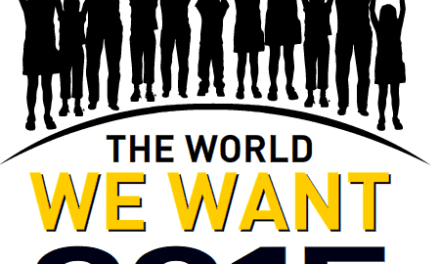Two thousand and fifteen approaches. Across multilateral and bilateral agencies, in foundations and research institutions, work is underway to develop new post-2015 frameworks and targets Will the MDGs be re-shaped and reworked to complete unfinished business? Will poverty reduction continue to provide the focus for global action? Or will sustainable development, human development or economic growth become the primary drivers for change? More radically, might 15 years of MDG targetry suggest that a single, global framework is limiting in its capacity to respond to the diverse needs of the poor and the disadvantaged worldwide?
As negotiation evolves, education will need to fight its corner. It is by no means a given that education received the relative priority given to it in the MDGs. In addition, the closely related, Education for All objectives will require some redefinition and rebalancing to gain substantive international support.
In shaping the post 2015 case for education and development, some reflection is needed on the value that MDG and EFA goals and targets have added in making progress in education and training at the country level. Has the reductionist nature of global frameworks, by simplifying, been virtuous? In the rush to plan ahead, is attention to lesson learning sufficiently evident?
The multilateral infighting that characterised Jomtien (1990) and Dakar (2000) must be avoided. Is it possible to develop new types of forums and campaigns that lessen the constraints of traditional bargaining practice? And what space will there be for many agendas (skills, private education, early childhood care and education, addressing inequality, countering conflict) and many voices (the UN, bilateral aid agencies, INGOs, foundations and research bodies, national governments and CSOs)?. Will the role of initiatives such as the Global Partnership for Education and Education First be important in guiding, re-shaping and influencing new agendas?
Will the United Nations Development Group (UNDG) country and global thematic consultations on post 2015 agendas have real traction on global consensus building? Will the voice of those who live in low income countries really be heard in the international debate? How will their relative and varied priorities be addressed? Since 2000 many governments have endorsed international targets, some quite slavishly, others with greater attention to national context and circumstance. And many of the aid programmes which support national education plans and programmes have MDG (or EFA) targets as their foundation stones. How will the experience of these relationships be captured and used in the move forward?
These and other questions were the subject of an UKFIET DFID dialogue on Education and Development to 2015 and beyond held at the Institute of Education London University on 11 December. A set of discussion slides developed by DFID on Education post-2015 can be downloaded to the right. Your comments are invited. Please use the comments feature below.






Trackbacks/Pingbacks